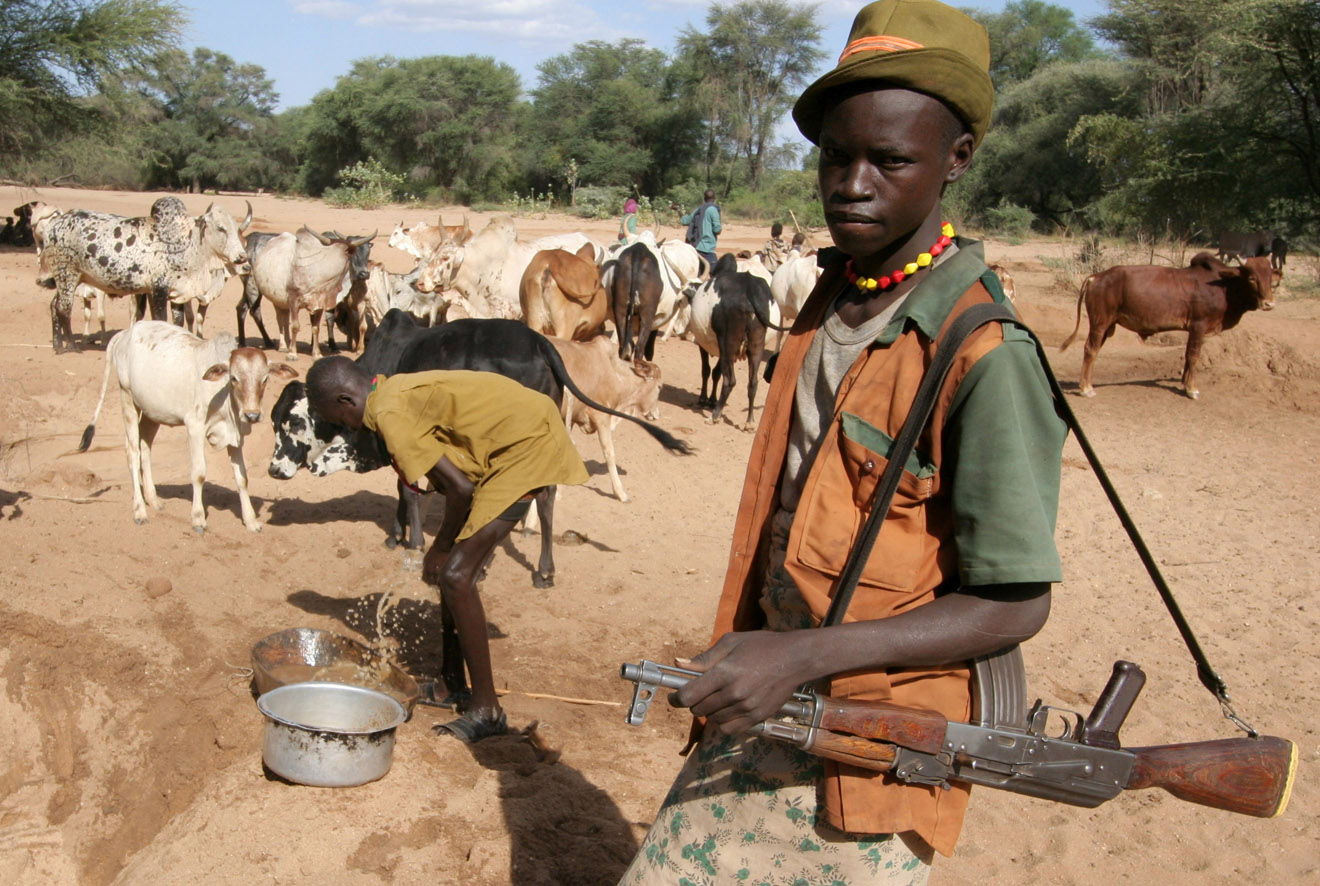Violence related to cattle rustling in the central Kenyan districts of Laikipia and Samburu has forced thousands of people to flee and led to the closure of 12 schools, leaving about 2,500 pupils without classes, local community leaders and teachers in the area said.
"It is the second year now that thousands of children are missing education because of insecurity. It must be addressed," said Mureithi Kamanja, the executive secretary of the Kenya Union of Teachers in Laikipia district.
Incidents of cattle rustling and a subsequent operation by security forces against suspected raiders last week are believed to have left 50 people dead, most allegedly at the hands of the police. The violence is reported to have been triggered by an attack by suspected ethnic Pokot raiders from Samburu district on villages inhabited by ethnic Samburus in the neighbouring Laikipia district on 21 May.
Most members of the Samburu community were fleeing towards Wamba division in Samburu district and Oldonyiro area of neighbouring Isiolo district.
Joseph Lepariyo, a programme officer with the Samburu Community Organisation for Development and Support, said an estimated 20,000 people had fled their villages. He accused security forces of using excessive force as they pursued suspected cattle rustlers in the notoriously lawless area, where armed nomadic cattle-herding communities frequently steal livestock from each other. He claimed that the Pokot raiders had provoked the Samburu when they raided the villages.
Joseph Lenayara, who sustained bulllet wounds during the fighting between Samburu herders and Pokot raiders in the Olmoran area of Laikipia, said it was the second time he has been wounded in violent cattle rustling during the past eight months.
"This is the worst crisis to befall me," said Lenayara. "I have lost 180 sheep and goats and 47 cattle which I bought when I retired from my work as a guard," he said from his hospital bed in Rumuruti District Hospital.
"I am lucky to be alive. There are five bullets in my body, but I have lost all my animals and my social status," he added. Owning large herds of livestock earns one respect among the Samburu.
Security forces under fire
Security forces have been accused of targeting innocent people in the crackdown against suspected raiders.
Laikipia West District Commissioner, Julius Mutula, however, claimed that 32 suspected Samburu bandits were gunned down after they attacked Pokot villages.
"We are making all efforts to eliminate persistent fighting and cattle rustling. Those killed were bandits and not innocent herders," said Mutula. "We shall continue and ensure the habit is brought to an end," he said.
Daniel Legreded, a local councillor in Samburu, claimed that more than 50 youths herding livestock at different locations across the district had been killed and that their bodies were rotting in the bush because families feared the police might shoot them if they went to collect them.
"Many people have been killed, grazing fields have been deserted and the police are causing more terror than the bandits," said Legreded.
Local politician Feisal Lekworere said the state had failed to act on insecurity in the area. "I have been away from my farm for more than one year. At least 10,000 [people] have been unable to go back to Laikipia since last year. The government has failed us," he said.
na/jn/mw
This article was produced by IRIN News while it was part of the United Nations Office for the Coordination of Humanitarian Affairs. Please send queries on copyright or liability to the UN. For more information: https://shop.un.org/rights-permissions





